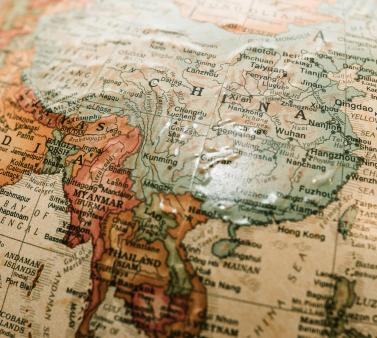Objectives
This degree provides basic training in geography. There are three pathways:
Geography:
Basic training providing keys to understanding the ecological and social issues affecting the planet. This option has in part been designed for students who wish to go on to study a MEEF (Teaching, Education and Training Careers) Master’s Degree.
Development:
Solid basic training in the fields of urban and rural development. This pathway is based on specific classes on planning (regional institutions and their fields of action, regional spatial planning policies, etc.) and a series of classes on the themes of the city and local development. This pathway draws on disciplines other than geography: economics, sociology, law.
Environment:
Training for environment generalists who will be able to go on to a specialized Master’s degree. Fundamental classes provide comprehensive training (in climatology, hydrology, geomorphology, biogeography, etc.) and specialized courses in environmental management.
Skills
The degree offers general courses in all areas of geography to provide an overview of the discipline.
As the training progresses, classes become more specialized, allowing students to choose their Master’s specialization later on.
Practical work sessions (TPs) with geographical materials are scheduled throughout the course to facilitate students’ work in each discipline of geography.
More specialized practical work sessions (Computer-Assisted Cartography (CAC) and Computer-Aided Design and Drafting (CADD), Geographic Information System (GIS) and remote sensing) are also offered throughout the three years of the degree.
Course Content
Year 1 (L1)
-
Three major classes in Physical Geography, Human Geography, Planning;
-
Discovery class presenting the diversity of geographical approaches (on a topical theme and on Brittany);
-
General disciplinary methodology in map reading, map construction and written and oral expression.
Year 2 (L2)
-
A significant amount of time dedicated to the fundamental disciplines to avoid the fragmentation of classes;
-
Introduction to a specialization;
-
Field trip for each pathway, combined with reflection on the role of “the field” in geography and on the method of collecting and processing field data;
-
A methodological block with progression over the two years L2 + L3.
Year 3 (L3)
-
Shared modules: disciplinary fundamentals in semester 5 with an introduction to research and international relations in semester 6 (research conferences + foreign language classes);
-
Geography pathway: methodological block in year 1 / Introduction to thematic and regional approaches as used in the competitive examinations / Introduction to research validated by a dossier presenting a field approach;
-
Planning pathway: Some of the teaching is done by industry professionals / Professional workshops over the two semesters, designed to ensure continuity: diagnostic in semester 5 (S5), project in S6 / Group work supervised by industry professionals / Autonomous use of methodological tools with a geomatics project in S6 bringing together the different tools studied in S3, S4 and S5;
-
Environment pathway: Some of the teaching is done by industry professionals / Professional workshops over the two semesters, designed to ensure continuity: diagnostic in semester 5 (S5), project in S6 / Group work supervised by industry professionals / Autonomous use of methodological tools with a geomatics project in S6 bringing together the different tools studied in S3, S4 and S5.



